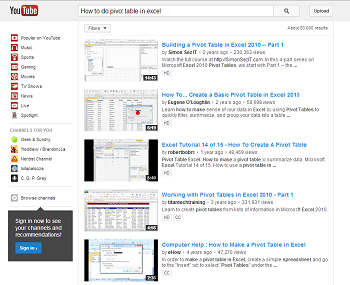How to get a Finnish IP address
The easiest way to improve your digital privacy is to switch your IP address using a VPN. We’ll …

 While the Internet continues to explode with information and content, it is astounding that there are a number of governments that block certain websites to prevent their citizens’ access. The most notable target is YouTube.
While the Internet continues to explode with information and content, it is astounding that there are a number of governments that block certain websites to prevent their citizens’ access. The most notable target is YouTube.
YouTube is one of the most profound websites for gaining information available today, as it allows people to communicate ideas, share knowledge, and connect with one another through videos.
However, a government can regulate the Internet Service Providers (ISPs), forcing the ISPs to implement web filters to bar any particular websites, keywords or other parameters that it deems a “threat” to its stability or its people.
The revolutions in Egypt and Libya, and the ongoing civil war in Syria, were started – in large part – due to YouTube access and the gathering of like-minded, young, and frustrated individuals. However, conservative nations like Iran, China and North Korea all continue to block access to YouTube and many other websites.
By controlling the flow of information to its citizens, a government has the ability to determine what its people hear, see, or read, making it much easier to keep those same citizens under the government’s control. However, YouTube gets its incredible power because it is a resource for education.
When YouTube was first launched, it quickly became an important platform through which people could share ideas and learn a great deal about nearly any topic that they wanted to investigate.
Today, YouTube is one of the first places people go to find information, to be entertained, and even to gather news. One of the reasons for this is that YouTube is controlled by Google, and Google remains the leader in the search engine industry.
Below are some eye opening statistics on YouTube viewership:
If you’ve ever spent time looking through the millions upon millions of videos hosted on YouTube, you’ll have an good idea of the vast amount of content that exists on it.
There are many different types of home videos, in which people record themselves, their family members, or even their pets, and post them to either be humorous or to garner attention. Sometimes, they post these videos with the intent of only sharing with family and friends, as a way to stay connected. Other people post videos as a way to increase public viewership (and, consequently, advertising income).
There are also many music videos on YouTube that can bring artists directly to a new fan base. Today, there are plenty of stories of people becoming fans of a musician after they first heard a song on YouTube – rather than on the radio or on iTunes.
There are ‘how-to’ videos that provide a visual instruction manual to accomplish just about any goal. You can learn how to bake a cake, stitch a quilt, perform data analysis in Excel, or even change the oil in a car. This kind of information gives people the basic knowledge needed to navigate everyday life.
However, one type of information that people also share on YouTube, which causes some governments to ban their citizens’ access to it, is political ideas, commentary, and emotions.
People in countries like Egypt and Libya who craved freedom discovered that YouTube was an incredible resource to be able to share those ideas and hopes with others within their countries. As more people connect through this website and see that others share their opinions and viewpoints, YouTube has the potential to start movements, excite action, and change the world.
One of the reasons why YouTube is so popular is the quick, easily digestible video presentation of information and the service’s video rating system. Instead of reading 1,000 words on how to change the oil in your car and still wondering where the oil drain plug is, you can watch a quick video and see exactly how to accomplish the task.
YouTube offers both the visual and audio advantages of modern media. Information is the key to enlightenment and empowerment, and YouTube is one of the quickest and easiest ways to gain that increased informational capacity.
Today, mobile technology has advanced so much that YouTube videos can be viewed on just about any mobile computing device, and the clarity of those videos is exceptional. As technology continues to advance, we will likely witness an even more powerful force emerge from YouTube.
YouTube provides an incredible platform upon which citizens can become more educated and gain valuable information.
Even though sovereign nations have every right to conduct their affairs as their political leaders see fit (to a certain degree), restricting their citizens’ access to YouTube greatly slow down the spread of knowledge among their citizens.
The United Nations can place pressure on these countries to encourage them to open up access to YouTube, but the real power comes from within.
Somehow, finding a way to let the citizens of these countries know what they’re missing could offer the best recourse to inspire them to demand access to YouTube.
Your government may block your access to YouTube, but there are solutions to help you bypass the censorship.
You can use web proxies or VPN services to access YouTube or any website from anywhere. Web proxies and VPN services work by accessing YouTube on your behalf and passing the content to you via the proxy server or VPN server.
